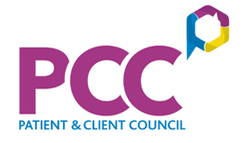Mental Health Engagement Platform
The Mental Health Strategy in Northern Ireland aims to improve the mental health and wellbeing of the community. It is a response to the high prevalence of mental health problems in Northern Ireland, as well as the recognition of the impact of mental health on overall health and wellbeing. The strategy aims to improve access to services and support, promote mental health literacy, reduce stigma and discrimination, and increase investment in mental health services, and to achieve a more integrated, person-centred approach to mental health and wellbeing in Northern Ireland.
With this aim in mind the PCC led on developing structures to support and embed co-production within the mental health strategy delivery.
The PCC wish to ensure that the voice and lived experience of those who have been through the mental health system is both heard and actioned across all strategy and policy development. This resulted in the PCC establishing a Mental Health Engagement Platform for those with lived experience of mental health services.
- Reducing stigma and discrimination
- Prevention and early intervention
- Funding and investment in mental health services
- Focus on recovery-oriented services
- Workforce issues
- Integrated approach to service provision with cohesion between statutory services and community and voluntary sector
- A structured and standardised method of feedback and reflection on services provided
- Ongoing co-production and collaboration with service users and placing the appropriate emphasis on the voice of lived experience
- Inequality of services based on location must be improved
- A joined up “no wrong doors” approach when asking for support
Key highlights
Between May and August 2022 four Training sessions took place with the Community Development and Health Network (CDHN). These sessions focused on making stronger connections as a group, understanding different kinds and levels of engagement, having a greater understanding of real experiences of co-production, awareness of opportunities and planning priorities for the coming year. The group recognise the importance of co-production lies in its potential to promote inclusive and responsive services, empower service users and carers, and enhance service quality and outcomes.
The PCC Mental Health Engagement Platform and the Northern Ireland Mental Health Delivery Unit collaborated on a joint piece of work with the platform being identified as a regional lived experience forum to feedback experience and insight into the 23/34 delivery plan for the Mental Health strategy. The group were given oversight of the plan which had detailed outlines of actions/areas of focus taking both funding and workforce issues into consideration. The platform then discussed areas of importance and potential shifts in focus due to greater and more prevalent needs in certain areas.
This feedback was then presented at the Mental Health Delivery Unit Workshop with members of DoH, PHA and community and voluntary sectors in attendance, a member of the PCC Engagement Platform was asked to speak as the service user voice and addressed the group to share their personal experience. This feedback from the group was written into the delivery plan and will inform the direction of the strategy moving forward. As a continuing connection and focus on ongoing engagement a member from the Mental Health Delivery team sits on the platform to update the group and receive ongoing feedback for further consultation.
Action 31 of the Mental Health Strategy is to develop a regional mental health service, operating across the five HSC Trusts, with regional professional leadership, responsible for consistency in service delivery and development.
The Co-Chairs of the RMHS have worked in partnership with the group and the PCC Mental Health Platform has been identified as a person with lived experience forum for the RMHS. The platform will set a ToR as the forum of lived experience and decide how best the collaborative board and forum relate to each other. There will also be an opportunity for training moving forward.
A number of service user consultants from different trusts sit on the mental health engagement platform. One of these consultants from the WHSCT has been a regular contributor to the group with a focus on informing and working collaboratively to hear the groups views on his work in peer support. In the Mental Health Strategy Actions 16 and 33 are about the delivery of a recovery model and peer support regionally. These actions will be supported by a number of new posts, the group will be in a position to feed into job specification and interview process to ensure the voice of the lived experience is valued from recruitment all the way through to appointment.
The group are undertaking an asset mapping piece of work to identify and utilize the resources and strengths held within the collective knowledge of the group. The group is made up of people from different trust areas and as a regional group we can use this diversity to asset map and understand each trusts resources and infrastructure and how they can be utilized to promote mental health and reduce social determinants of health.
Interest Form
